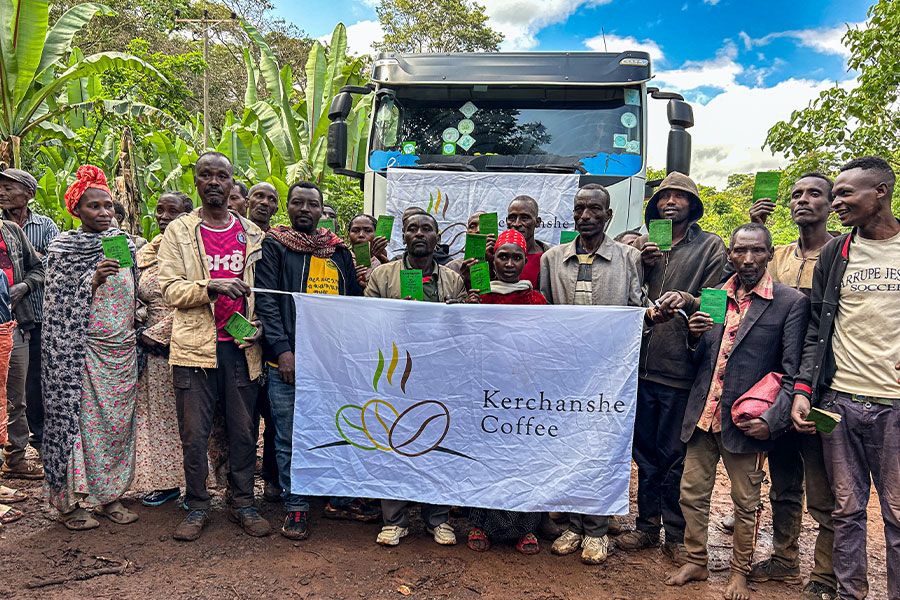
Oct 21 , 2023
By Hintsa Andebrhan
Prime Minister Abiy Ahmed (PhD) took the dais last week to discuss an issue of significant regional consequence: Ethiopia’s water resources and its strategic interests in the Red Sea. By hingeing his argument on Ethiopia’s historic, ethnic, and cultural ties with Somalia, Djibouti, and Eritrea, the Prime Minister asserted a view that resonated with many and sparked debate among geopolitical analysts.
The core of his thesis centred on the belief that Ethiopia’s bonds with its neighbours can shape the country’s foreign policy, especially concerning shared water resources and maritime access. While the historical and ethnic ties are undeniable, such connections, as many analysts agree, should not be the foundation for territorial or resource claims.
The Grand Ethiopian Renaissance Dam (GERD) on the Nile River featured prominently in his address. The GERD has long been a source of contention with downstream countries, notably Sudan and Egypt. As Abiy underlined Ethiopia’s right to discuss the Red Sea, he paralleled this with the country’s right to determine the Nile’s fate. His criticism, however, of the Arab League’s posture on the GERD has raised eyebrows. The involvement of countries not directly linked to the Nile Basin in negotiations challenges the established norms of international diplomacy.
Another point in the Prime Minister’s address that has generated public interest relates to the transboundary basins. He stressed that Eritrea benefits from Ethiopia’s Tekeze River. However, informed observers might note this misstep: The "Mereb" or "Stet" River originates from central Eritrea and merges as one of the Nile’s tributaries. Eritrea has been a silent player concerning the GERD, a fact emphasised by President Isaias Afwerki’s supportive visit to the dam site. Such solidarity hints at the underlying potential for a strengthened Ethiopia-Eritrea alliance.
Eritrea’s role is central when discussing the geopolitics of the Red Sea.
Ethiopia cannot afford to be a spectator in this dynamic maritime landscape, and forging strong bilateral relations with neighbouring countries is imperative. The 2018 peace agreement between Ethiopia and Eritrea is evidence of this potential collaboration.
States Article Two: "The two countries will promote comprehensive cooperation . . . based on complementarity and synergy."
Eritrea’s ports of Assab and Massawa could serve as Ethiopia’s gateway to the Red Sea. Before the devastating war between Ethiopia and Eritrea in 1997, President Issayas had envisioned political and economic integration between the two countries, hoping for shared sentiments from Ethiopia’s then-leader, Meles Zenawi. Given the tumultuous history, both countries must consider a roadmap to deepen their cooperation. The political game board demands a focus on policy formulation that prioritises integration, and Ethiopia’s political elite needs to recognise this.
Ethiopia’s position on the global stage, particularly in relation to the Arab countries, is also worth noting. As Abiy seeks to deepen ties with the Red Sea region, Ethiopia needs to craft a nuanced foreign policy to balance national interests and regional cooperation. An observer seat in the Arab League might serve as a symbolic step, but the Egyptian influence, given Cairo’s bearing on the Nile and its clout within the Arab League, poses a challenge. Navigating this Egyptian dynamic requires a deft touch and a robust policy vision.
As Ethiopia charts its course in the Red Sea and the Nile basin geopolitics, Prime Minister Abiy’s address will be closely scrutinised. His country stands at a crossroads. By embracing its historical connections yet grounding its policies in realpolitik, Ethiopia can aim for a future that acknowledges its past while navigating the intricate reality of regional diplomacy.
PUBLISHED ON
Oct 21,2023 [ VOL
24 , NO
1225]


Radar | Oct 03,2020

My Opinion | Jan 13,2024

Fortune News | Sep 06,2020

Commentaries | Mar 25,2023

Commentaries | Jun 03,2023

Editorial | Sep 23,2023

Commentaries | Oct 05,2019

Viewpoints | Jan 25,2020

Advertorials | May 30,2025

Viewpoints | Apr 13,2019

My Opinion | 131453 Views | Aug 14,2021

My Opinion | 127805 Views | Aug 21,2021

My Opinion | 125786 Views | Sep 10,2021

My Opinion | 123419 Views | Aug 07,2021

Dec 22 , 2024 . By TIZITA SHEWAFERAW
Charged with transforming colossal state-owned enterprises into modern and competitiv...

Aug 18 , 2024 . By AKSAH ITALO
Although predictable Yonas Zerihun's job in the ride-hailing service is not immune to...

Jul 28 , 2024 . By TIZITA SHEWAFERAW
Unhabitual, perhaps too many, Samuel Gebreyohannes, 38, used to occasionally enjoy a couple of beers at breakfast. However, he recently swit...

Jul 13 , 2024 . By AKSAH ITALO
Investors who rely on tractors, trucks, and field vehicles for commuting, transporting commodities, and f...

Jun 28 , 2025
Meseret Damtie, the assertive auditor general, has never been shy about naming names...

Jun 21 , 2025
A well-worn adage says, “Budget is not destiny, but it is direction.” Examining t...

Jun 14 , 2025
Yet again, the Horn of Africa is bracing for trouble. A region already frayed by wars...

Jun 7 , 2025
Few promises shine brighter in Addis Abeba than the pledge of a roof for every family...

Jun 29 , 2025
Addis Abeba's first rains have coincided with a sweeping rise in private school tuition, prompting the city's education...

Jun 29 , 2025 . By BEZAWIT HULUAGER
Central Bank Governor Mamo Mihretu claimed a bold reconfiguration of monetary policy...

Jun 29 , 2025 . By BEZAWIT HULUAGER
The federal government is betting on a sweeping overhaul of the driver licensing regi...

Jun 29 , 2025 . By NAHOM AYELE
Gadaa Bank has listed 1.2 million shares on the Ethiopian Securities Exchange (ESX),...